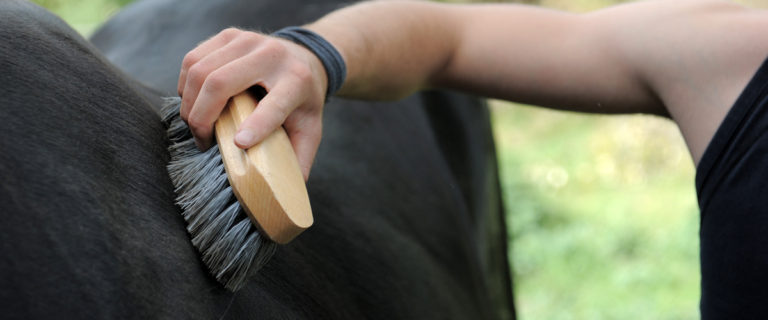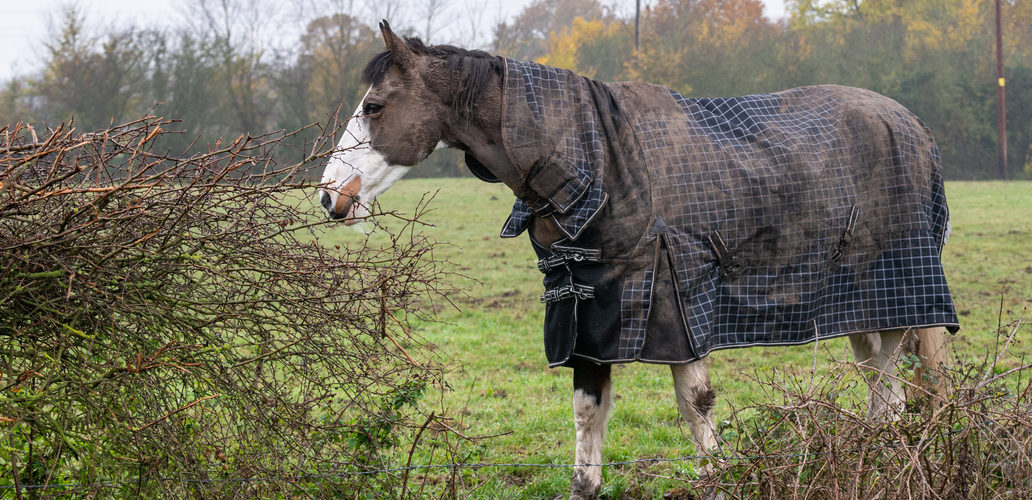Rain rot can be annoying and hard to treat if you don’t catch it soon enough. Learning how to identify and treat rain rot will save you so much time and keep your horse healthy and happy. Rain rot is characterized as scabs on your horse’s skin that peel off in clumps and cause hair loss in the area.
Causes
It’s generally a common issue in places with a lot of rain, high humidity, and warm temperatures, subsequently there will be a large amount of insects as well which help to spread the bacterium from horse to horse. This condition is caused by a bacterium called Dermatophilus Congolensis. It is possible for your horse to get rain rot even if they had a blanket on or have shelter from the elements. Dew poisoning, rain rot, and rain scald are all caused by the same bacterium.
Identifying
Rain rot is easy to diagnose since it causes visual skin issues. As mentioned, rain rot causes scabs on your horse’s skin that flake off and leave bald spots on your horse. The most common spots for find rain rot include the croup, back, and legs. Horses with long winter coats are especially prone to show signs of rain rot.

Treatment
Mild cases may heal on their own if your horse is in good health. However, it’s always smart to start treating the issue as soon as you notice it so you don’t run the risk of the lesions spreading to other parts of your horse or even other horses. Removing the scabs can help clear up the condition. When picking at the scabs use extreme caution since this is not a very comfortable process for the horse.There are many antimicrobial shampoos and sprays on the market so you can decide which brand works best for your horse. It’s important to note that during this time disinfect your brushes between each use otherwise you could risk reinfecting your horse. If the antimicrobial baths don’t seem to be working, you might have to call a veterinarian out to get antibiotic injections to assist your horse in fighting the bacterium.
Rain rot is a nuisance for both horse and owner so doing your part with good hygiene, a balanced diet, and good immune system will help prevent any future rain rot.

